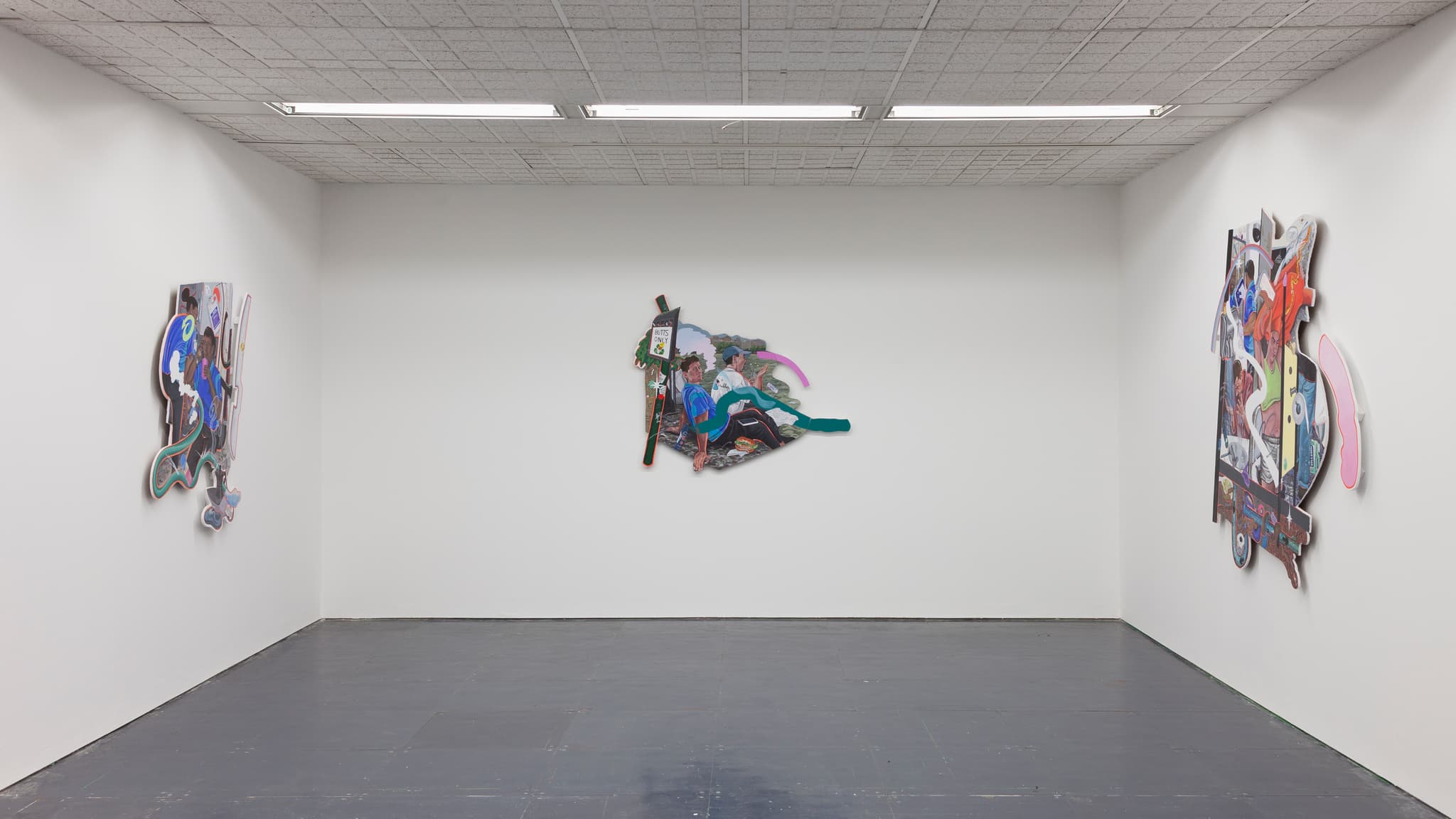
Installation View
Scrubbers, 2018
Project Native Informant, London
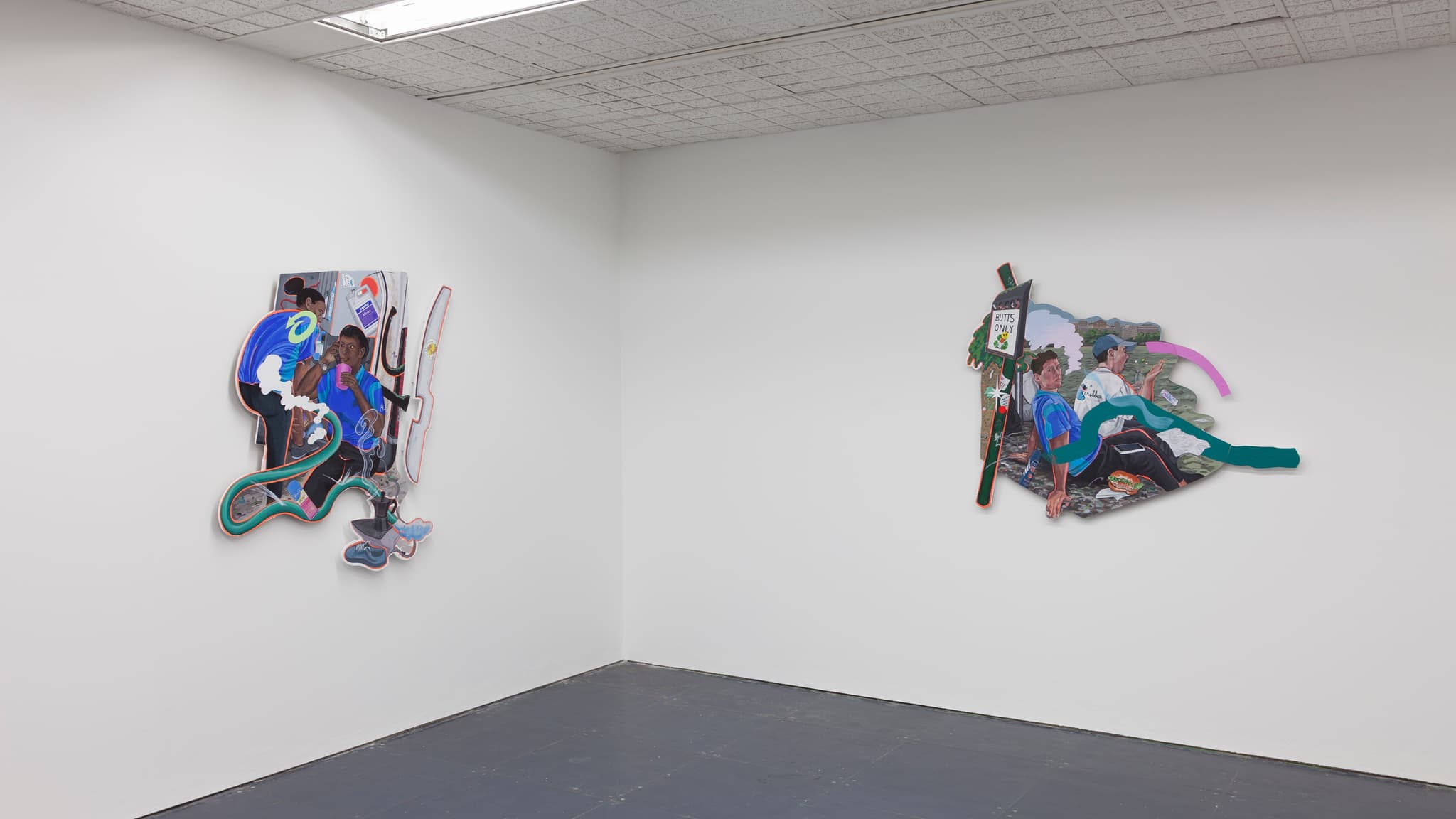
Installation View
Scrubbers, 2018
Project Native Informant, London
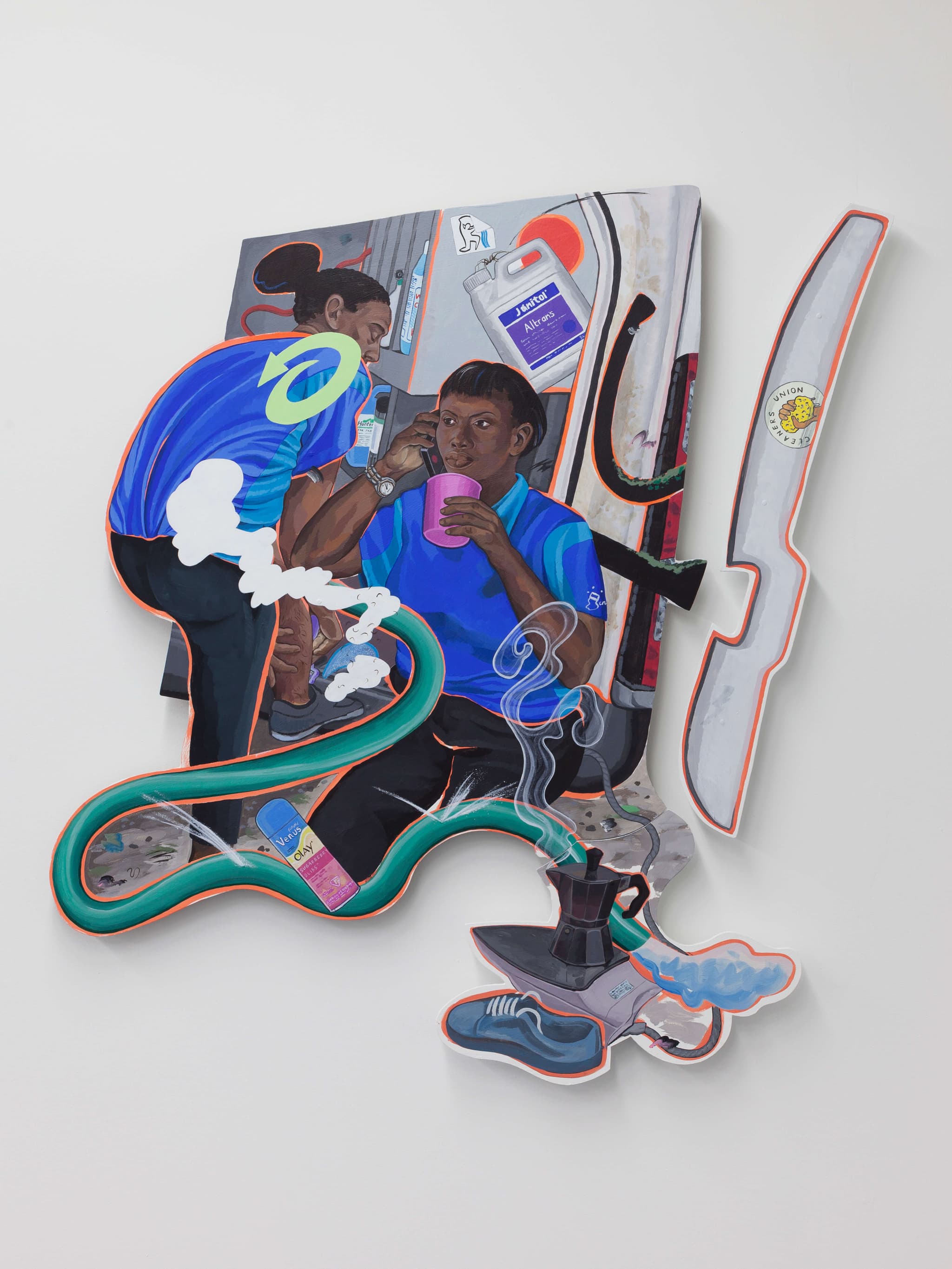
Flo Brooks
I'm here, but only for a minute
2018
Acrylic on Wood
121 × 115 × 4.5 cm (47 5/8 × 45 1/4 × 1 3/4 inches)
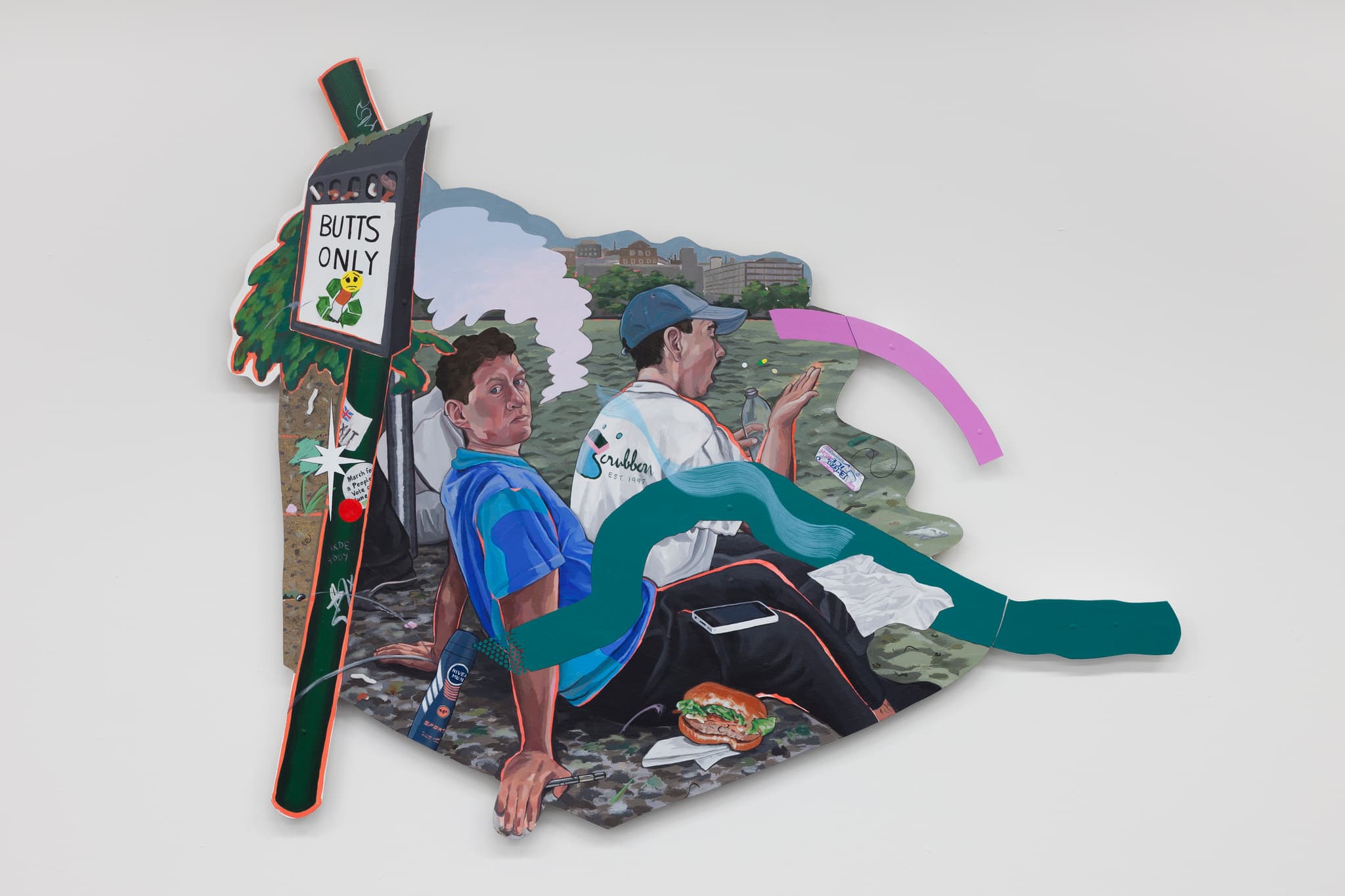
Flo Brooks
Butts Only (that's the sound that lonely makes)
2018
Acrylic on Wood
109 × 136 × 4.5 cm (42 7/8 × 53 1/2 × 1 3/4 inches)
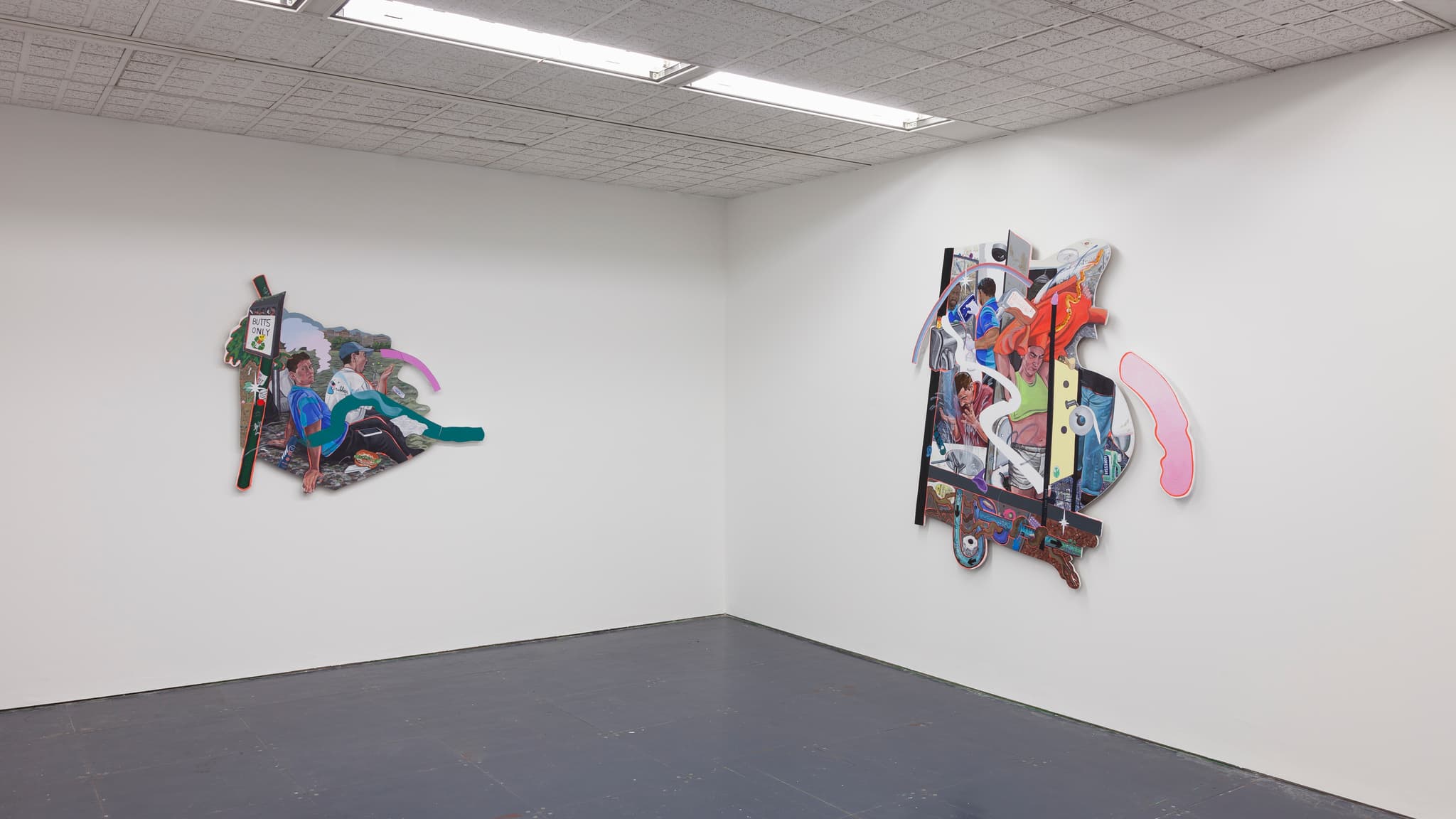
Installation View
Scrubbers, 2018
Project Native Informant, London
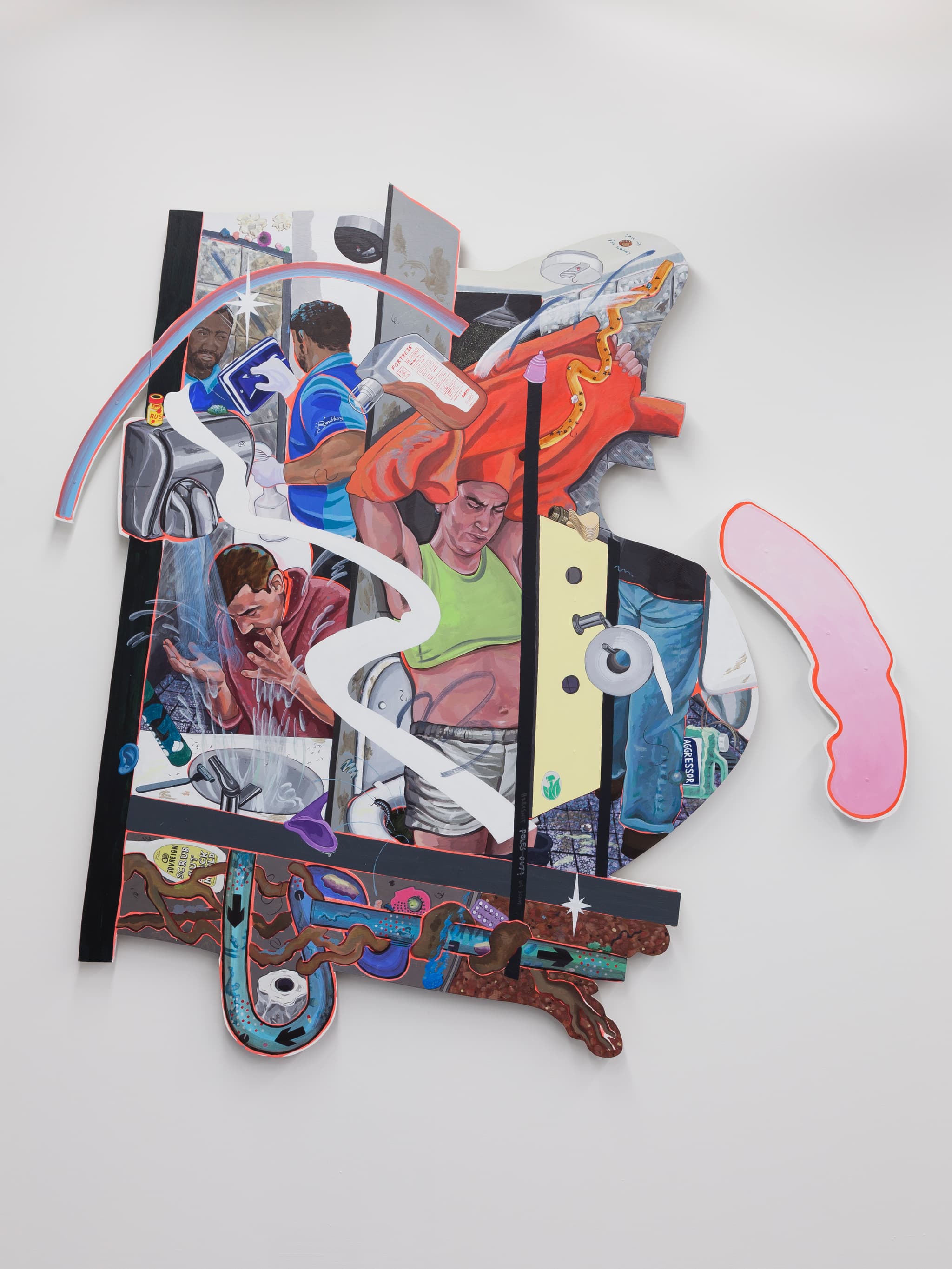
Flo Brooks
U Bend but it's still a trap
2018
Acrylic on Wood
161 × 157 × 4.5 cm (63 3/8 × 61 3/4 × 1 3/4 inches)
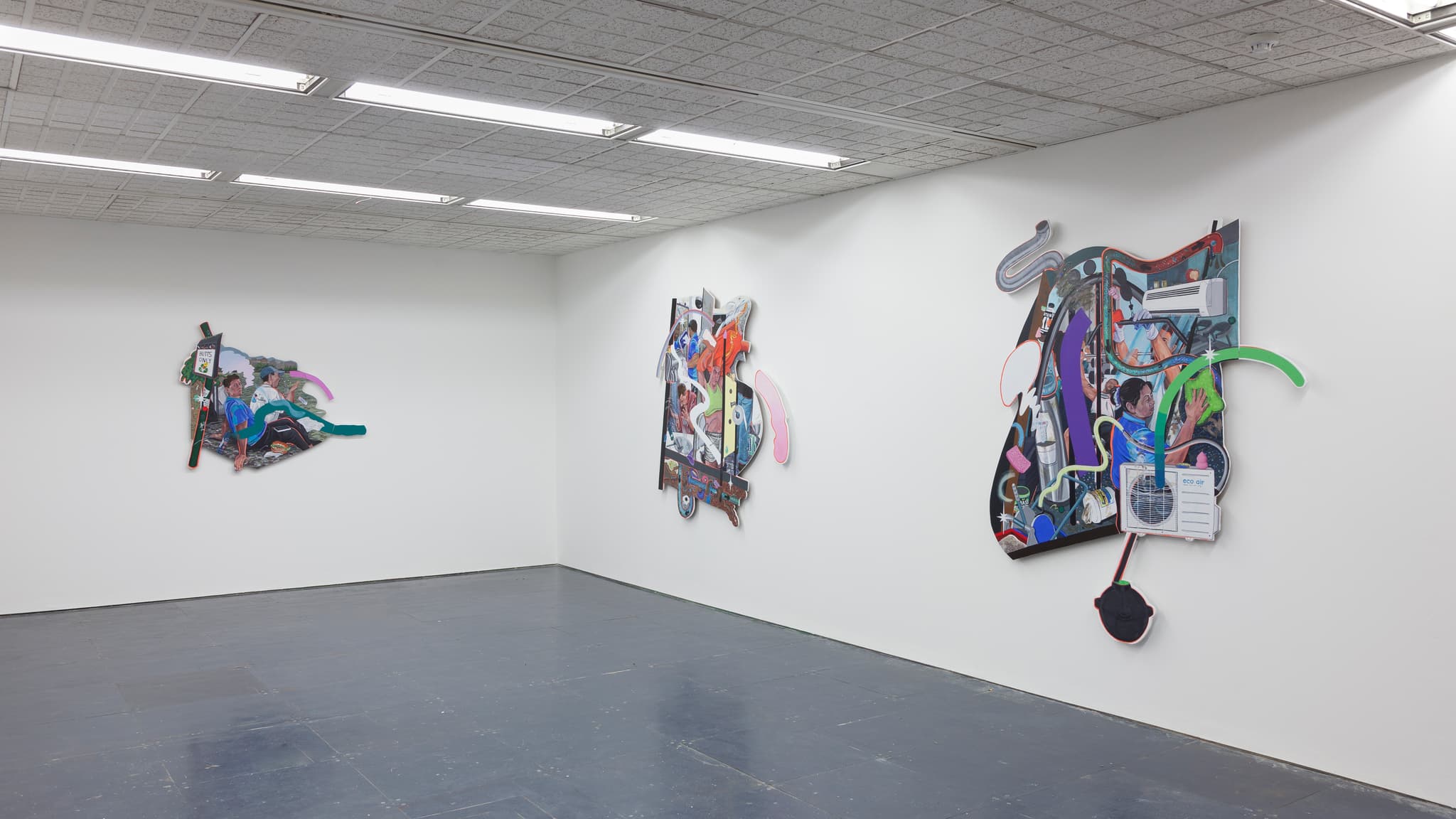
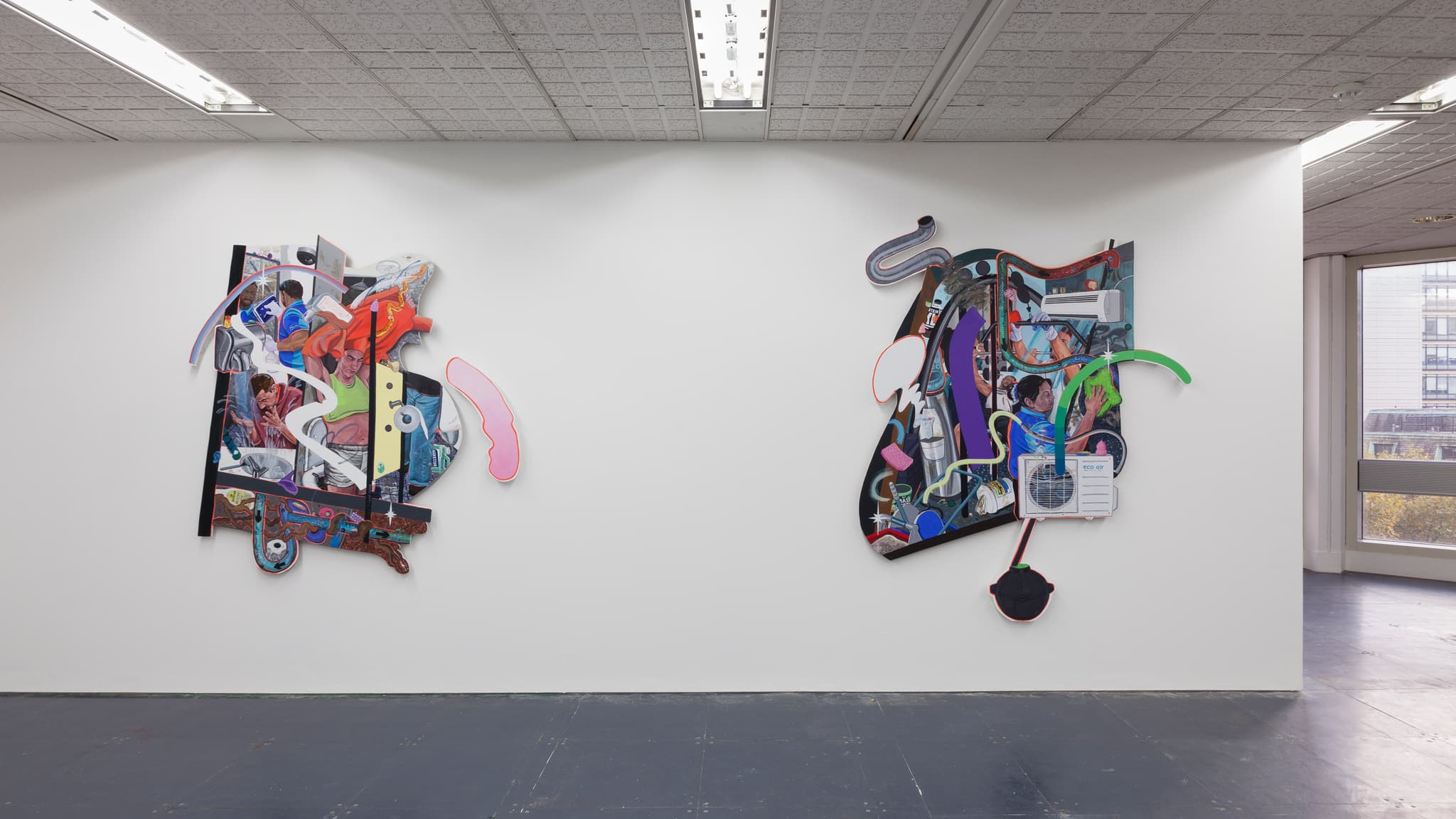
Installation View
Flo Brooks
Scrubbers, 2018
Project Native Informant, London
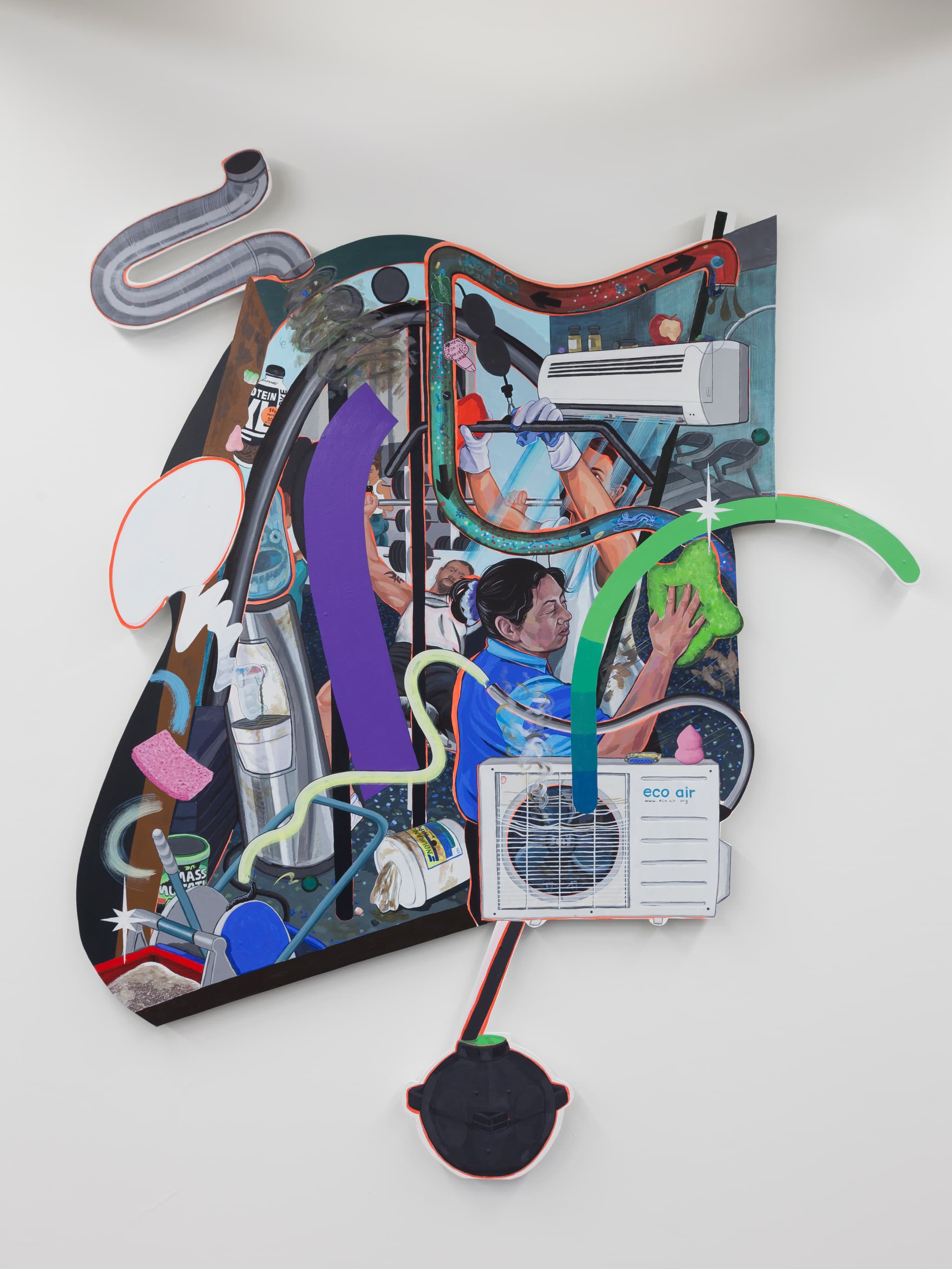
Flo Brooks
Mass Mutation
2018
Acrylic on Wood
194 × 157 × 4.5 cm (76 3/8 × 61 3/4 × 1 3/4 inches)
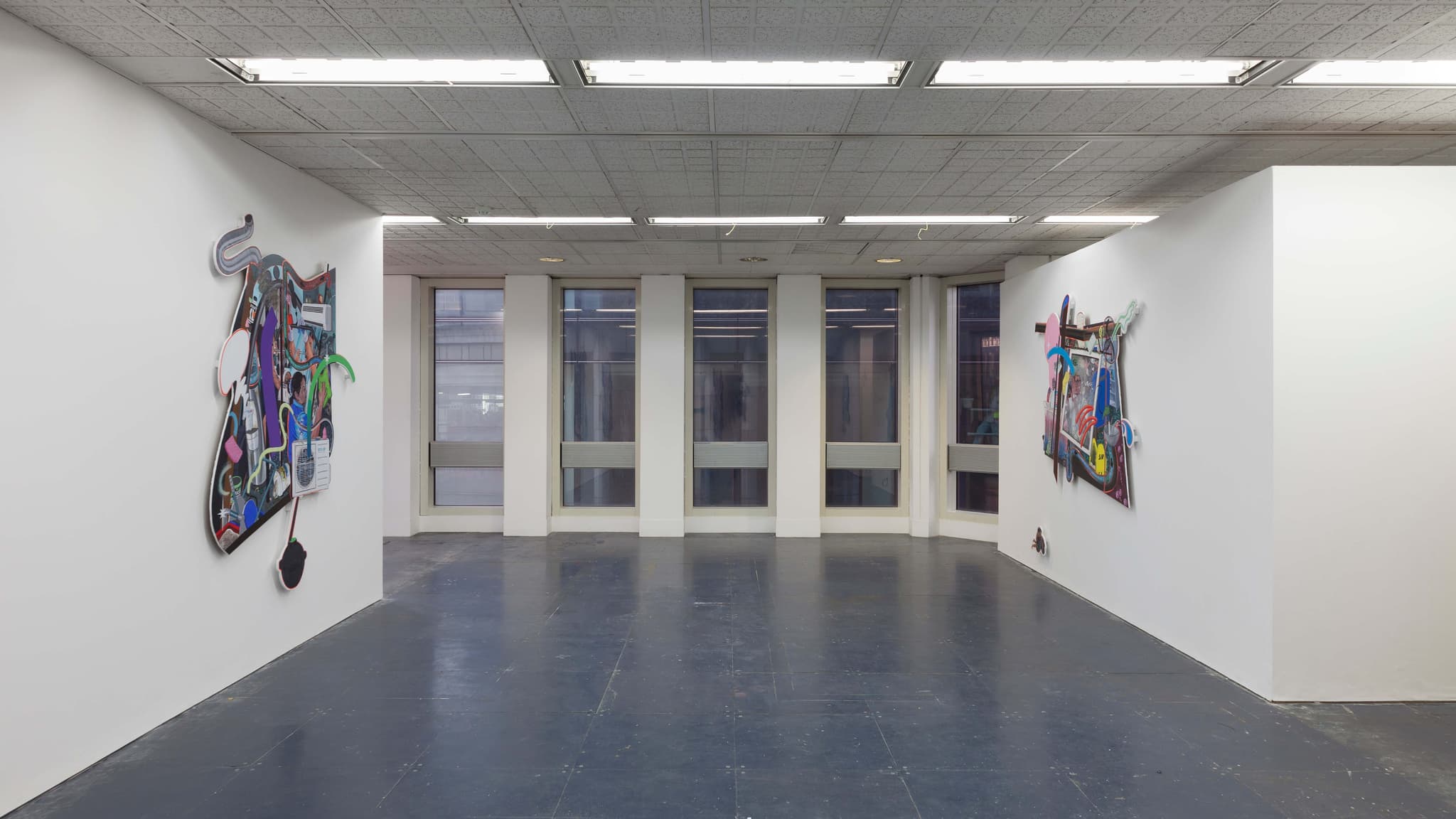
Installation View
Scrubbers, 2018
Project Native Informant, London
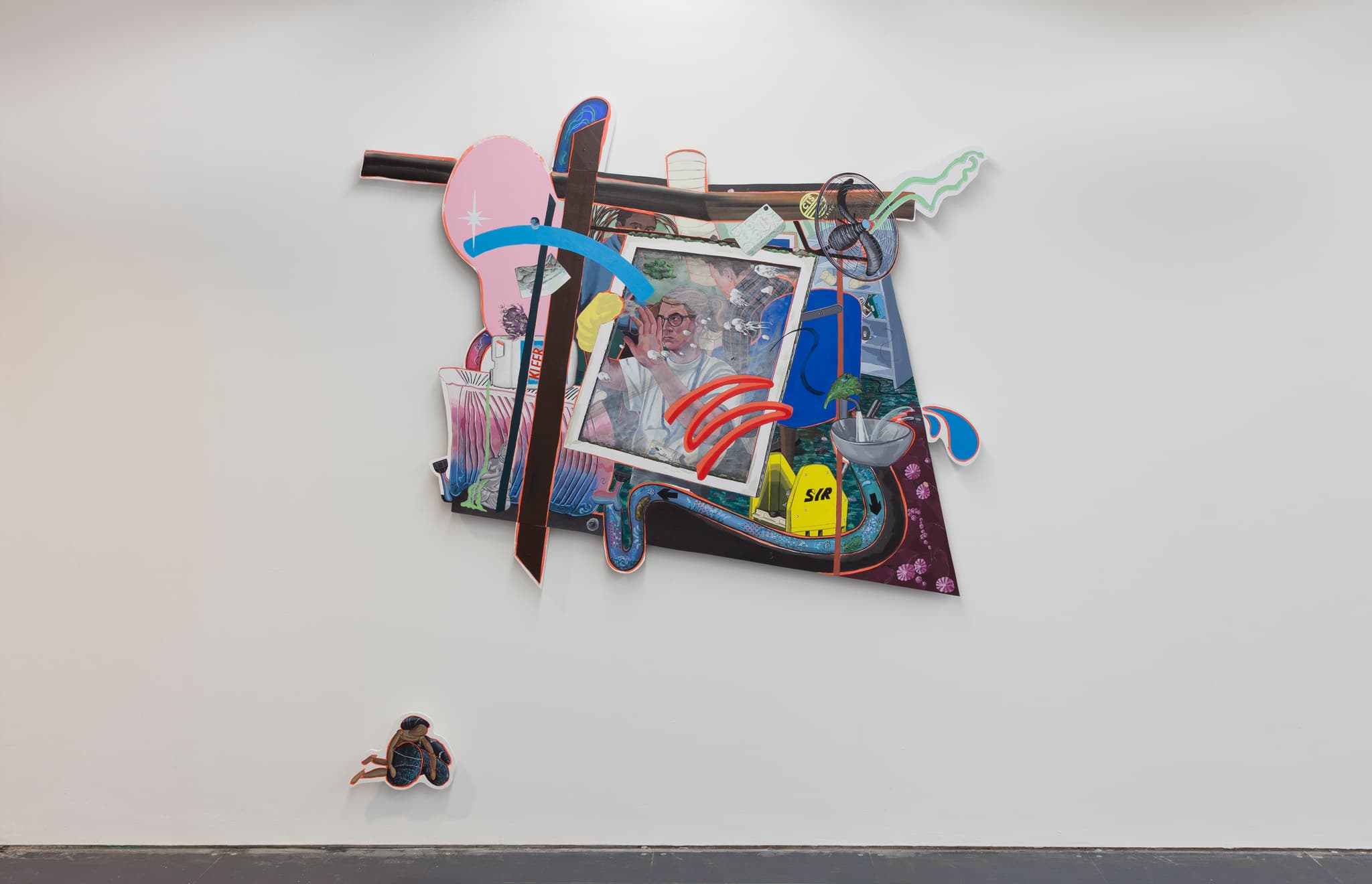
Flo Brooks
YessSIR! Back off! Tell me who I am again?!
2018
Acrylic on Wood
197 × 177 × 4.5 cm (77 1/2 × 69 5/8 × 1 3/4 inches)
In a new series of acrylic on board paintings, the exhibition brings together notions of cleanliness, normativity and morality in a dramatized satirical fiction, exploring the ways the body is manipulated through the lens of hygiene.
Brooks describes a fictional commercial cleaning company, ‘Scrubbers’, as they work their way through a number of familiar institutional spaces; the public toilet, the gym, the psychotherapy room, punctuated by coffee and cigarette breaks. Instead of working undisturbed into the night, their schedule takes them into opening hours, and both the cleaners and service users clash in space, confronted, undermined and disrupted by each other’s tasks. Equipment is broken, or has mutated over time, visible plumbing is ineffective or obsolete, the technologies of hygiene that steer these spaces and their occupants into production are destabilized, rendering the spaces obsolete, sullied, soiled.
People, objects, architecture and motifs are deliberately arranged in the works to convey a frantic tension, highlighting our persistent efforts as consumers to maintain, modify and ‘enhance’ ourselves, often to the detriment of our own well-being. Brooks uses this irony (that the hygienic practices and commodities promising us ever more easy, clean, authentic, and better ways to be, so often lead to economic hardship and poor mental health) and turns it on its head, mocking the absurdity of these hygienic embodiments and destabilizing their efforts to show us what we really need. A tub of ‘Endurance’ gym wipes is knocked over and soiled, pharmaceuticals are carried through filthy plumbing systems jarring amongst fecal matter and sea-slugs, and a person at a urinal pisses on a bottle of ‘Aggressor’, a multi-purpose cleaning solution.
The spaces represented in the paintings are those traversed through Brooks’ own hormone transition and mental health support, and describe particular hygienic acts they've exercised in a bid to re/cover their ‘authentic’ gendered, material and psychic self. Checkered with uncertainty, compromise and bargaining, for them they feel more like spaces of entrapment and desperation and are pulled in part from their experience as a carer, and from family and friends who work in the hospitality industry and medical professions.
Evoking historic examples where hygiene has been utilized as a technology to manage and control social bodies, Brooks hints towards histories of colonization and domination, asking us to question their presence today (for example within contemporary socio-spatial projects of gentrification such as the rise of gyms, coffee shops, boutiques, replacing community hubs, estates and spaces to loiter.) Brand names such as ‘Fortress’ hand-sanitizer, ‘Sovereign’ black mould spray, and a ‘Sir’ mop bucket are inserted into the paintings, with equal parts tragedy and humour. The re-appropriation of the word ‘scrubber’ is also a provocation, with an attachment of class and gender based stereotypes, it was once a 19th century term for “low-ranking woman in domestic service”, many of whom would’ve been forced to work as prostitutes to make ends meet.